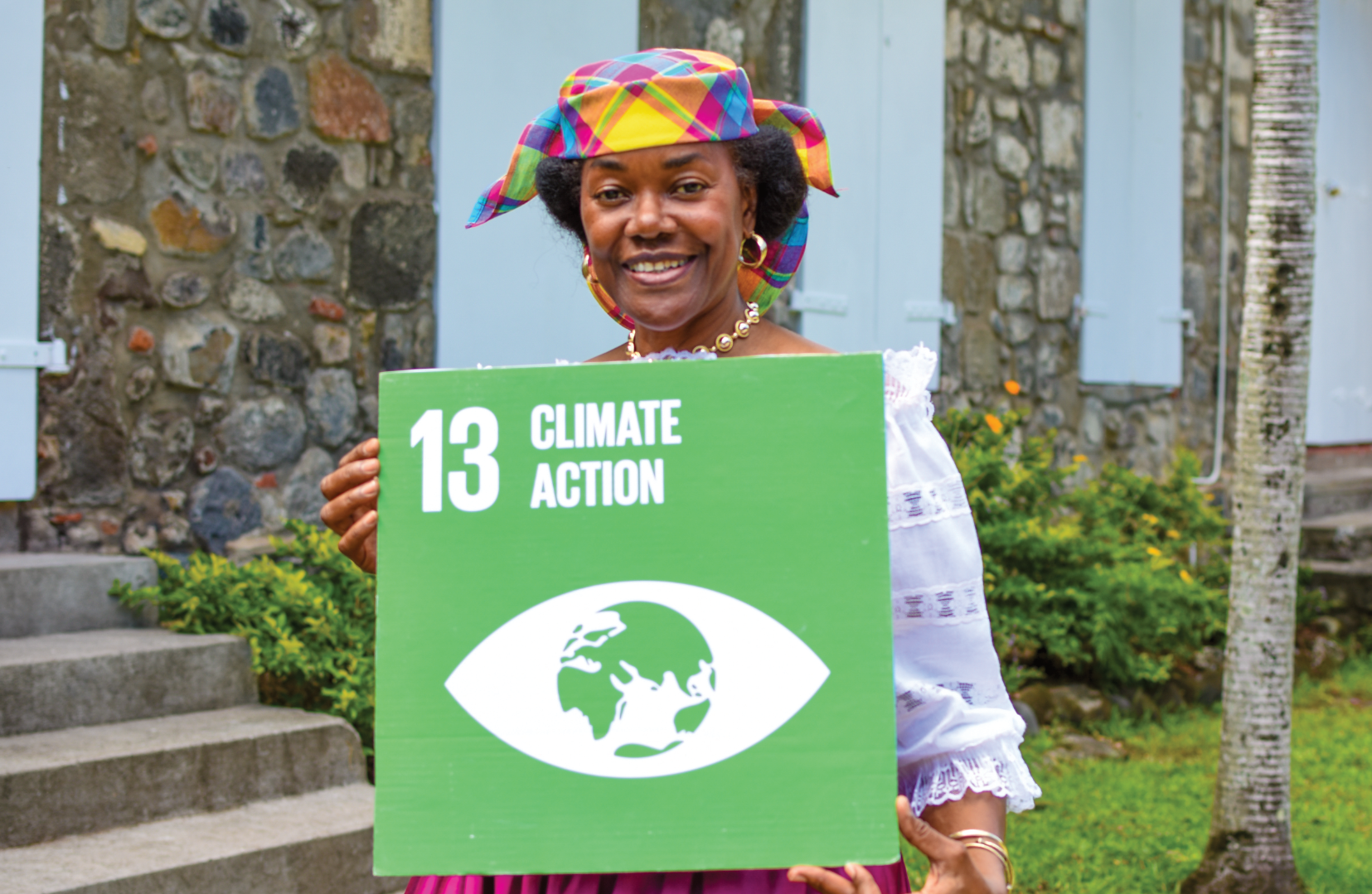
The world, in grappling with the current COVID-19 pandemic, has had a stark reminder of how disasters disproportionally affect the vulnerable. The disease is having a particularly dramatic impact on families and communities in developing countries that have fewer resources and weaker social safety nets. The COVID-19 economic downturn will differ from previous crises, as many of the sectors overexposed to the collapse in economic activity, such as tourism, absorb a sizeable share of female employment.
The UNDP’s programme, “Enabling Gender-Responsive Disaster Recovery, Climate and Environmental Resilience in the Caribbean” (EnGenDER) has been working with implementing partners, stakeholders and donors over the last year to strengthen disaster risk management systems for 9 Caribbean countries and build resilience to the effects of climate change. This work is happening at a variety of levels, from improving central government’s ability to build strategies for inclusive approaches to policy making for building resilience; to strengthening regional systems for planning and recovery from natural disasters; to community level interventions to ensure the vulnerable have what they need, so that adaptation and mitigation actions in key livelihood sectors, such as agriculture, consider vulnerable persons.
The EnGenDER programme is also helping the Caribbean to access climate finance as many applications are rejected due to the lack of data and the need for more detailed technical information. It is within this context that the EnGenDER project has awarded complementary funding of approximately US$600,000 to 5 countries (Antigua and Barbuda, Belize, the Commonwealth of Dominica, Saint Lucia and Saint Vincent and the Grenadines) that have applied for funding to improve their climate financing applications, in order to enhance climate resilience, gender equality and inclusion for vulnerable populations.
The funds will be used to ensure that each country’s applications for Climate change adaptation/ mitigation initiatives incorporate gender equality and inclusiveness and will leverage a significantly larger sum of climate financing.
“Disasters, catastrophes, reconstruction from rubbles seem to be a lifecycle in the Caribbean. Building back better has been adopted as UNDP’s trademark in recovery and resilience actions. EnGenDER is one of the most powerful instruments supported by Canada and the U.K. to assist Caribbean societies – in particular women – increase their resilience, their capacity to bounce back better. After COVID, we need to be prepared for the season. EnGenDER is a preparedness tool that focuses on reducing vulnerabilities. Magdy Martinez Soliman, Resident Representative, UNDP Barbados and the Eastern Caribbean.
“The UK supports this Offer of Complementary Funding to Governments” under the EnGenDER project. It will facilitate access to climate finance for Caribbean countries and support them to strengthen their own disaster risk management systems and resilience to future events, to ensure that no one is left behind, especially those who are most vulnerable.” Stefan Kossoff, Country Director, UK Department of International Development (DFID) Caribbean.
“The Government of Canada recognises there are tremendous barriers to accessing climate financing for Caribbean countries and is proud to support this initiative. Recent catastrophic disasters, including a number of devastating hurricanes and now COVID-19, remind us that we need to take action and that business-as-usual approaches are no longer an option. We also know that women, girls and vulnerable populations are on the front lines of these crises and often suffer the most. As such, it is imperative that governments prioritise sectors that ensure women and the most vulnerable remain at the forefront.” Benoît-Pierre Laramée, Minister Counsellor (Development), Senior Director, Caribbean Regional Programme.
To this end, this complementary funding to Governments will assist in accelerating the closure of the existing climate financing gaps and in so doing will contribute to achieving the sustainable development goals (SDGs) and increasing national resilience. This initiative is one step in ensuring that actions that seemed impossible yesterday are possible today. The current crisis is evidence that humanity can make the paradigm changes needed for a sustainable future.
Marium Alleyne, EnGenDER, Technical Officer-Climate Change

 Locations
Locations



